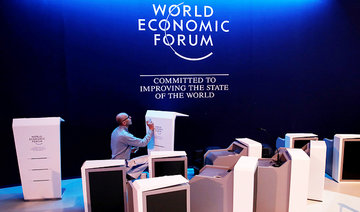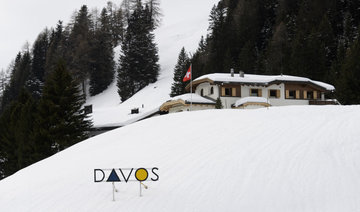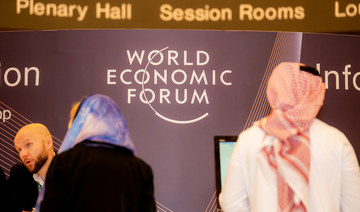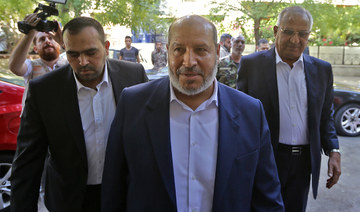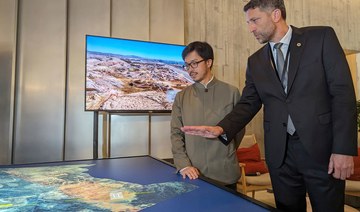DUBAI: Mirek Dusek, the head of Middle East and North Africa affairs for the World Economic Forum, is anticipating a “historic” annual meeting in Davos this week — and not just because of the presence of President Donald Trump and his big US entourage.
The president’s late and surprising decision to attend the January gathering of the global elite has added extra spice to this year’s event, but Dusek, the epitome of the Davos diplomat, does not want to prejudge the reaction the WEF will give to his “America First” agenda.
“It is a global event, and I’m very happy he is coming. It is important for the international community to learn the views of the president first-hand. But I don’t want to speculate on what kind of reception he’ll get,” Dusek said in an exclusive interview with Arab News.
The American delegation is the most heavyweight since President Clinton was the last White House incumbent to make the snowy trip to Davos in 2000. In addition to Trump himself, virtually the entire US Cabinet is in attendance, including his senior adviser Jared Kushner who has taken an active interest in Middle East affairs.
Dusek did not know whether Kushner’s wife, the president’s daughter and occasional adviser, Ivanka, would be at Davos. Trump is among 70 heads of state or government attending the meeting, which will welcome the biggest ever involvement by politicians at Davos — some 340 political delegates among the 2,500 or so business leaders, economists, academics, intellectuals and media that attend the event.
That reflects the WEF’s recent relabelling as an “international organization for public-private cooperation,” Dusek explained. “It means we are paying even more attention to working with decision-makers across the world. We are living in an evolving global environment, and if you want to make a dent in the big issues, you have got to have a multi-stakeholder model. We’re building our capacity to work with governments and political leaders,” he said.
Does that mean the 47-year-old organization, which began as an Alpine forum for accountants who also liked to ski, is morphing into the World Political Forum? “We are fulfilling our mandate for public and private cooperation and beefing up the political aspect,” Dusek said.
His role is to handle the MENA region within WEF’s global agenda. An Arabist, he worked for a time at the US Embassy in Baghdad before he joined the WEF in 2007. Reflecting the increasing interest by the WEF in the Middle East’s complex affairs, he now sits on the WEF executive committee.
Davos 2018 will be historic in another aspect too, he said. “We are really seeing engagement deepen from the economies and countries of the Middle East. There is an even stronger delegation this year from Saudi Arabia,” he explained, reeling off a list of ministers, ambassadors and business leaders from the Kingdom.
That is not surprising, given the momentous events that have been taking place in Saudi Arabia under the Vision 2030 strategy, which is in the process of transforming economic, social and cultural life there.
“The WEF is here to support the reform program in Saudi Arabia. We believe we can help improve the Kingdom’s global economy competitiveness, especially in view of the changes underway in the ‘fourth industrial revolution’ (4IR — the WEF’s shorthand for the economic changes brought about by the digital and communications industries).
“We also support the strategy of closing the gender gap, which is an issue we’ve been involved with at WEF for many years. It’s a core issue for the Kingdom, which will require a lot of thought in implementation,” he added.
The anti-corruption campaign underway in the Kingdom, aimed at driving out graft and fraud that costs the economy billions of dollars, will also feature at the Davos meeting. The WEF has for several years been running its own anti-corruption campaign called PACI (Partnering Against Corruption Initiative) to encourage transparency in business and the public sector, especially in emerging markets.
The Saudi finance minister, Mohammed Al-Jadaan, will attend one of the PACI sessions, Dusek said. “We are looking at how we can be helpful to the anti-corruption efforts by Saudi Arabia, as we have been with other corruption cases around the world,” he added.
The WEF is keen to expend its involvement in the region as a whole, and with the Kingdom in particular. “We’ve made many consultations with our partners in Saudi Arabia, and we believe it would be an excellent milestone in our relationship if we were to help stage an event there. We would be very open to the idea of an impactful or high-level summit in Saudi Arabia.
One possibility would be a satellite office for the 4IR hub the WEF recently launched in San Francisco, California. Several global centers are being considered as offshoot offices for 4IR — in Bahrain, India, Japan and Rwanda among others. The Kingdom’s new project to create a fully automated mega-city, Neom, would appear to make it a natural site for one of them. “I would not discount that,” Dusek said.
Given the region’s critical role in world affairs, the Davos meeting is also an opportunity to discuss the foreign policy of Saudi Arabia and the rest of the region. The Kingdom’s foreign minister, Adel Al-Jubeir, is expected to attend, as is the Saudi Arabian ambassador to the US, Khalid bin Salman. “It is important to have a view from Saudi Arabia on how they see the world,” Dusek said.
Regional partners, and rivals, will also be represented at Davos. The UAE is sending a big delegation under Mohammad Al-Gergawi, minister for Cabinet affairs and the future, and Minister of State for Foreign Affairs Anwar Gargash, and there will be in total eight heads of state from regional governments, including King Abdullah II of Jordan.
A delegation from Qatar — still in deadlock with some of its Gulf neighbors over allegations of terrorism funding — will be led by senior ministerial figures, while Dusek said it was “unclear” who would be attending from Iran, also at loggerheads with Saudi Arabia and other Gulf countries over foreign policy.
The WEF has in the past attempted to help conflicting parties to find common ground in foreign disputes, most notably in Libya and Palestine. Dusek said there were a number of sessions relating to the international relations of the region, but nothing officially in the week-long program that amounts to a “peace conference” for Gulf rivals.
“It is important for the WEF to act as a platform to talk about important issues and help decision-makers with their diplomatic efforts. It is a goal and a duty of WEF to facilitate them in decreasing tensions on the political front,” he said.
WEF Mideast chief ponders Trump, Saudi Arabia and corruption at historic Davos
WEF Mideast chief ponders Trump, Saudi Arabia and corruption at historic Davos
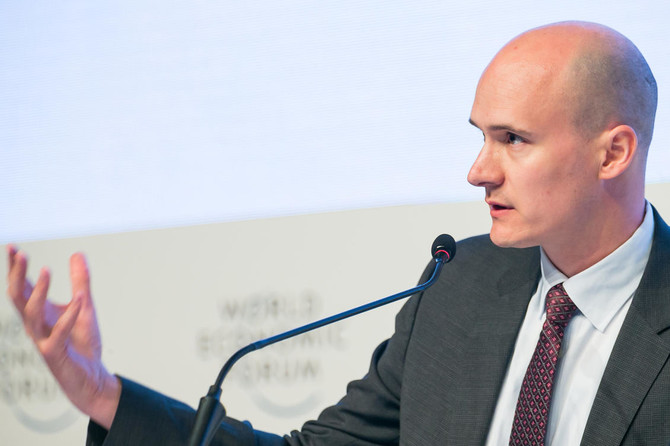
Saudi Arabia to host 28th World Investment Conference in Riyadh
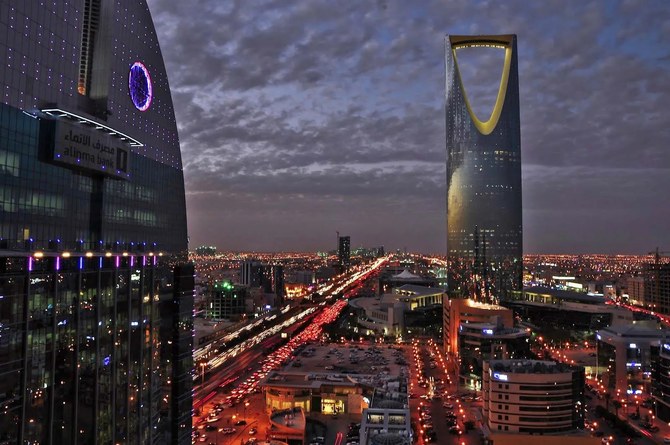
RIYADH: Saudi Arabia is on track to host the 28th World Association of Investment Promotion Agencies’ World Investment Conference from Nov. 25 to 27 in Riyadh.
The forum themed “Future-ready IPAs: Navigating digital disruption and sustainable growth,” will bring together leaders from investment promotion agencies, corporates, multilateral institutions, and other stakeholders to discuss global financial trends and opportunities, according to a statement.
The Kingdom’s selection as a host underscores its position as an international funding hub, according to Saudi Investment Minister Khalid Al-Falih.
“We are honored to be welcoming the global investment community to Saudi Arabia. Our strategic location at the crossroads of three continents, coupled with our world-class investment ecosystem and long-term political and economic stability, has seen the Kingdom develop into a global investment hub,” Al-Falih said.
“The World Investment Conference will serve as a platform to showcase our nation’s potential and forge partnerships that will shape the global investment landscape for years to come,” the minister added.
On WAIPA’s behalf, Executive Director and CEO Ismail Ersahin said: “WAIPA is honored that the 28th WAIPA World Investment Conference will be held in Riyadh, a city with a rich history and culture.”
Ersahin added: “With each edition, the WIC reaffirms its status as a guiding force for sustainable and inclusive development.”
He went on to stress how the conference is poised to be an impactful gathering aimed at the future readiness of IPAs.
Since 1995, the annual gathering has provided a forum for stakeholders to exchange insights and best practices and forge partnerships that drive economic development globally.
Saudi Green Building Forum set to obtain UNCCD’s permanent observer status
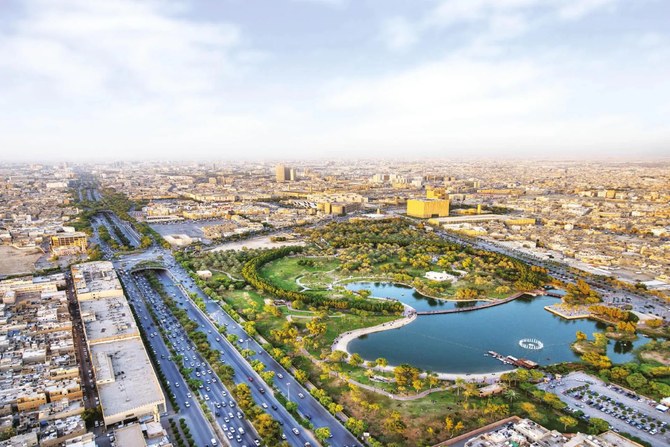
RIYADH: The Saudi Green Building Forum is set to obtain permanent observer status following the submission of a formal request to the UN Convention to Combat Desertification.
Pending a final decision during the 16th session of the Conference of the Parties to be held from Dec. 2-13 in Riyadh, this move underscores the forum’s efforts to enhance its role in sustainable development and combat desertification.
The forum, which has already been temporarily accredited, is involved in the proceedings based on the provisions of paragraph seven of article 22 of the convention and articles six and seven of the internal regulations of the COP, according to a press release.
This initiative is part of a broader strategy to integrate scientific and community-based approaches to environmental management.
Commenting on the development, Faisal Al-Fadl, secretary-general of the Saudi Green Building Forum, said: “We are pleased with the official notification from the UN Secretariat of the receipt of the required documents after a thorough review of the documents submitted for the accreditation of the forum as the first Saudi institution specialized in preparation for obtaining observer status for the Conference of the Parties to the UN Convention to Combat Desertification,” he stated.
“The efforts of local communities play a significant role in enhancing the sustainable development goals for people, plants, and prosperity through advocating for human experiences based on scientific rules and community health and well-being for healthy, fair, and resilient communities and cities, sufficient consumption and production, climate action in removing harmful carbon, and reducing the temperature to 1.5 degrees Celsius, addressing desertification, and managing natural resources and water,” he added.
The UN Secretariat confirmed the receipt of all necessary documents for the forum’s accreditation as an observer, encouraging further participation in the convention’s activities.
“After a thorough review of the documents submitted by your institution, we encourage you to continue participating in the implementation of the UN Convention to Combat Desertification and keep the secretariat informed of the activities,” the letter stated.
The Saudi Green Building Forum’s potential new status as a permanent observer at the UN Convention will enable it to contribute more effectively to global efforts against desertification, leveraging cooperation between developed and developing nations, particularly in sustainable land management and environmental restoration.
‘Two-state solution,’ investing in crisis resilience hold key to Mideast future, says Saudi minister
‘Two-state solution,’ investing in crisis resilience hold key to Mideast future, says Saudi minister
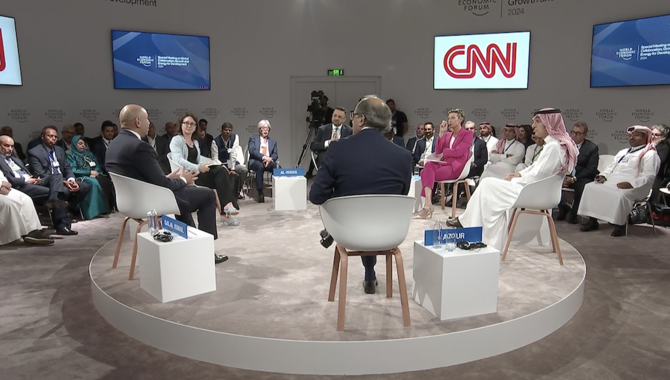
- Vision of regional development, prosperity ‘complicated by tensions,’ Adel Al-Jubeir tells WEF special meeting
RIYADH: The key to getting the Middle East region back on track toward development and prosperity is ending the Gaza conflict, the Saudi minister of state for foreign affairs said on Sunday.
Adel Al-Jubeir, who was speaking at the World Economic Forum Special Meeting being held in Riyadh, said the Israel-Hamas conflict raging in the enclave only served to “undercut” any attempts to integrate the region and “unleash its potential.”
He added that, considering its young population, abundant natural resources and strategic geographical location, the Middle East had all the ingredients to be a successful region.
The goal of policymakers in Saudi Arabia and beyond was to ensure these elements benefitted everyone and better linked the Middle East region with the rest of the world, Al-Jubeir said.
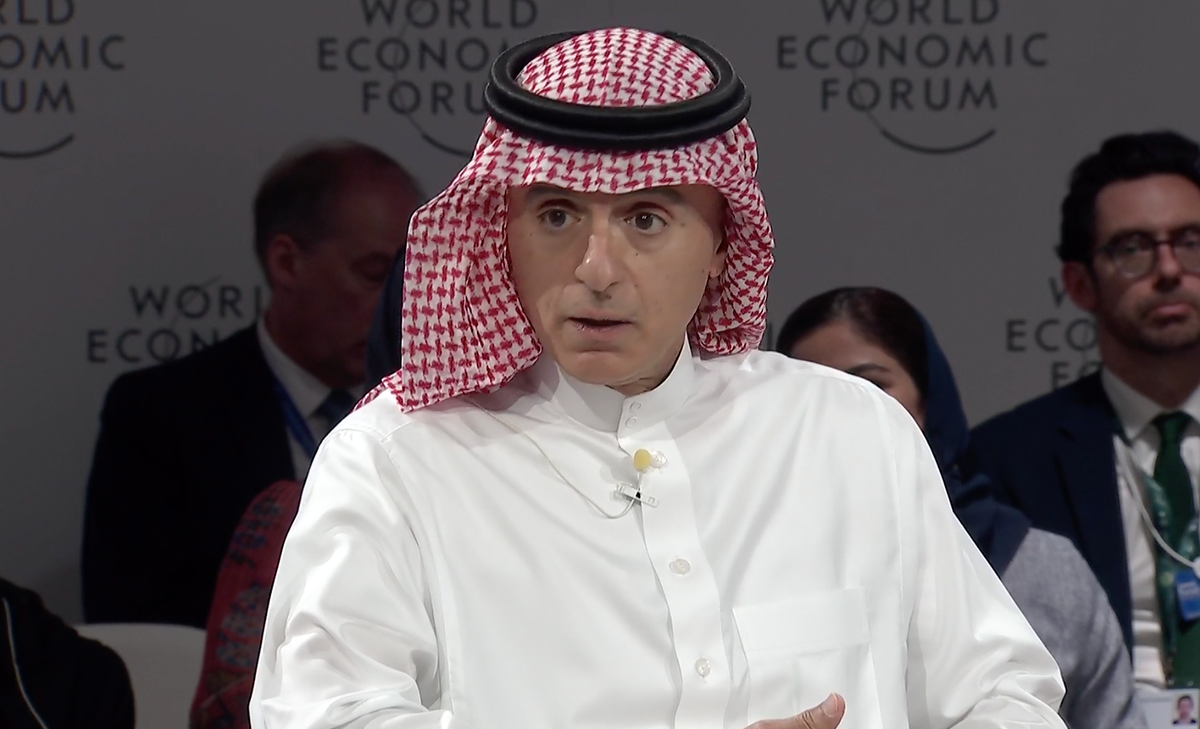
However, he said that this vision was “complicated by tensions” affecting the Middle East, and it was important to put an end to these in order to “focus on the things that matter” to developing its prosperity.
“(With the situation in Gaza), our number one priority is to stop the fighting,” he said. “Our second priority is to ensure enough humanitarian assistance goes into the Gaza Strip so that we avoid starvation, disease, and we take care of the people there,” he added.
“In the long term, we need to find a way to end this conflict (for good), and the only way we end it is by having a two-state solution, so we need to chart a clear, time-bound irreversible path to a Palestinian state.
“Saudi Arabia has said in terms of normalization (with Israel), this would be a part of that. The Arab world has had a position with regard to the Arab Peace Initiative, the US and the rest of the world supports this, so we need to make sure we stop the fighting, increase assistance and come up with a pathway to that Palestinian state,” he added.
When pressed by the panel moderator, CNN’s Becky Anderson, on whether a two-state solution would be possible with Benjamin Netanyahu and his right-wing government in charge in Israel, Al-Jubeir said it was in “everyone’s interest” to end the conflict.
“I’m not a mind reader or a psychiatrist; it’s not what I was educated in or my profession,” he said. “But what I can tell you is the interests of everybody in the region requires putting an end to this conflict, the potential that can be unleashed is tremendous, with good will, seriousness and foresight we should be able to get the ball over the goal line,” he added.
Mohamad Al-Ississ, Jordanian finance minister, also said the region had lurched from crisis to crisis over several decades, and told the WEF panel: “The one certain thing anybody can be certain of is that uncertainty is here to stay.”
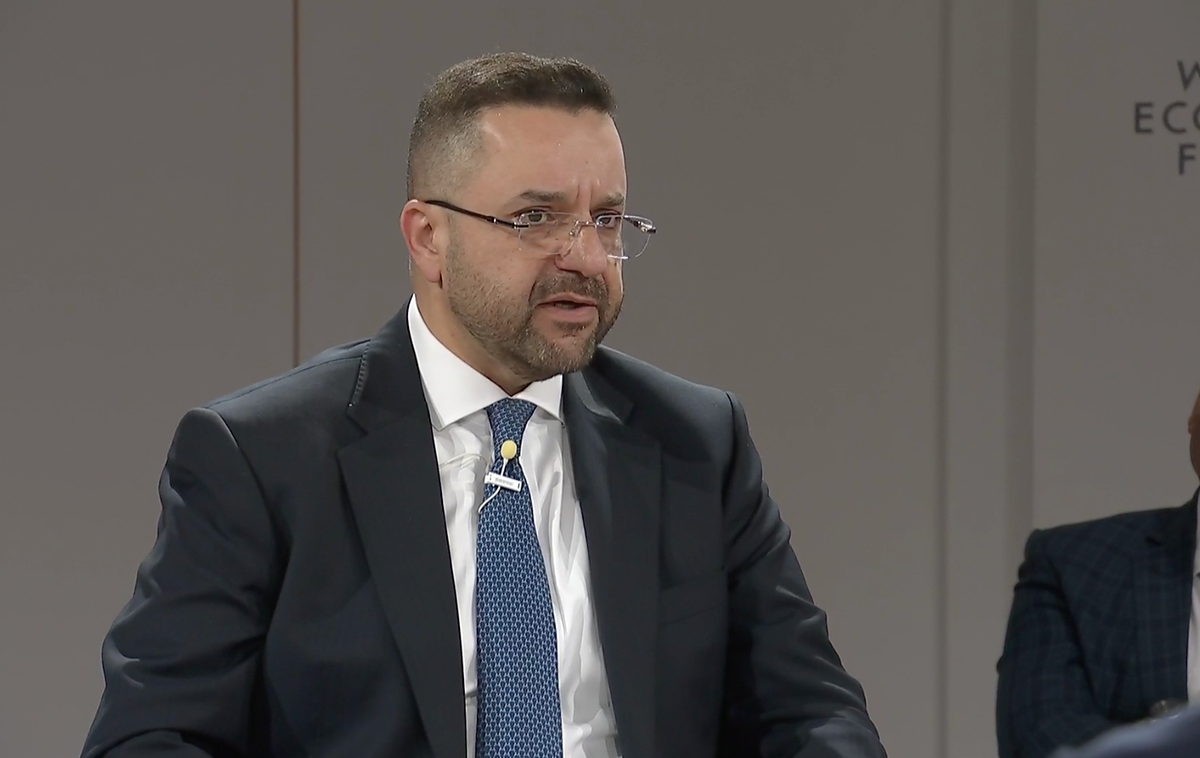
He said the role of policymakers in the Middle East should be investing and developing sectors that allowed the region’s economies to absorb and ride out the shock and impact that crises can have.
“The top priority is (determining) how to invest in enhancing your buffers, so that you can increase your resilience for when ‘black swan’ events, which have become the norm, unfold,” he said.
Ahmed Galal Ismail, CEO of UAE’s Majid Al-Futtaim Holding, agreed. He said that while peace and stability were “obviously indispensable to economic growth,” if the region just waited for it to happen, it could be “waiting for a long time.”
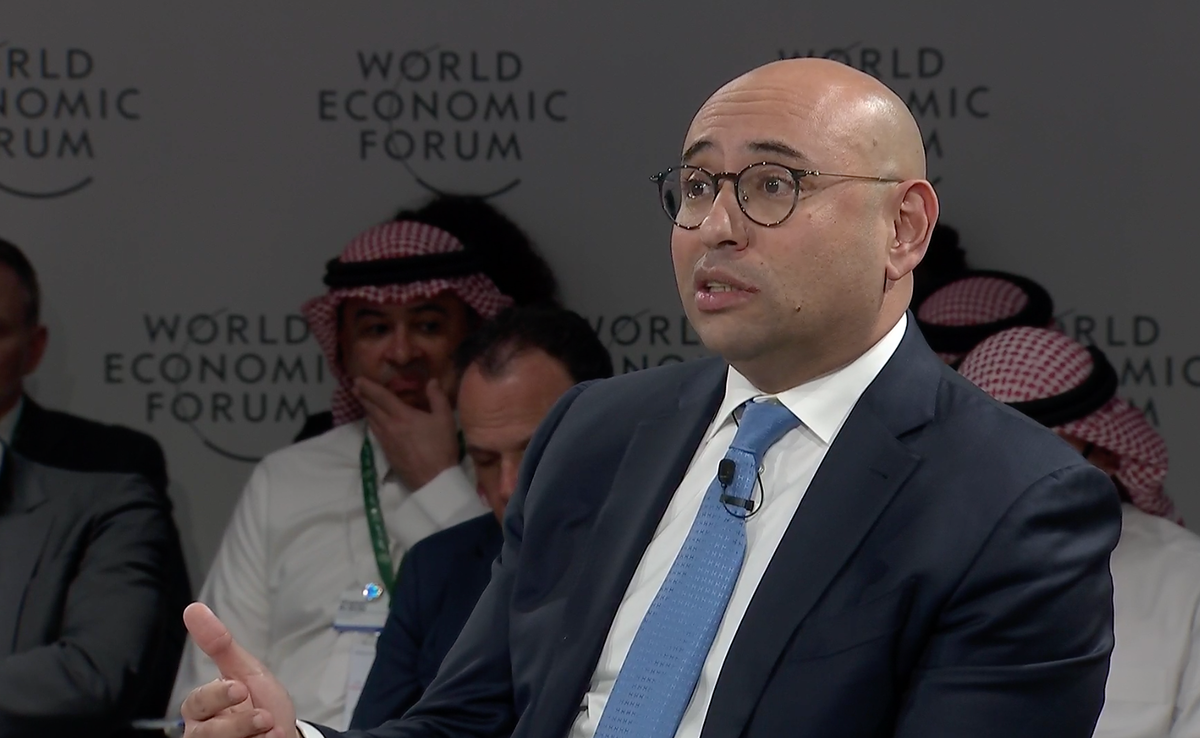
He cited an example of intra-Arab trading being at its highest-ever level, but added it was “anaemic” compared with other global blocs.
“We need to act. From a private sector perspective, we see opportunities independent from geopolitics and from the cruelty we see in parts of the region, so it is very important the actors in the sector are pragmatic, take the lead, and start what is needed to drive that economic integration.”
Closing Bell: Saudi benchmark index edged down to close at 12,381
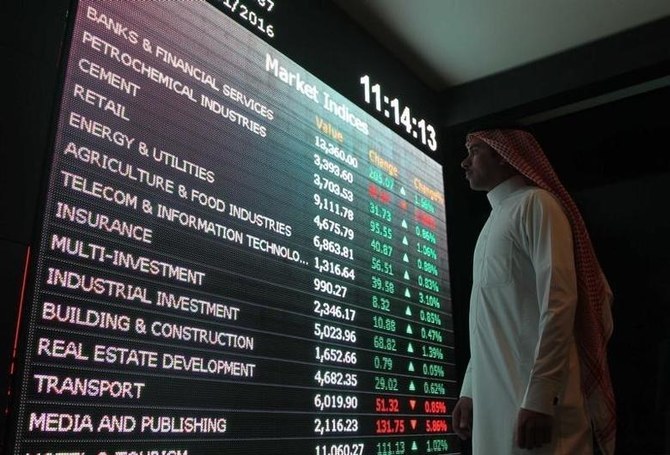
RIYADH: Saudi Arabia’s Tadawul All Share Index slipped on Sunday, losing 102.46 points, or 0.82 percent, to close at 12,381.95.
The total trading turnover of the benchmark index was SR3.64 billion ($972 million), as 29 of the stocks advanced while 201 retreated.
Nomu, the Kingdom’s parallel market, also dropped 414.9 points, or 1.55 percent, to close at 26,277.06. This comes as 11 of the stocks advanced while as many as 50 retreated.
Meanwhile, the MSCI Tadawul Index slipped 9.52 points, or 0.61 percent, to close at 1,553.88.
The best-performing stock of the day on the main index was Al-Baha Investment and Development Co. The company’s share price surged 7.69 percent.
Other top performers included Saudi Cable Co. as well as Fawaz Abdulaziz Alhokair Co.
The worst performer was ACWA Power Co., whose share price dropped by 5.76 percent to SR425.
Saudi Ground Services Co. as well as Al-Babtain Power and Telecommunication Co. also did not perform well.
On the announcements front, Saudi Tadawul Group approved the distribution of dividends worth SR276 million to shareholders for the fiscal year ending Dec.31, 2023, with SR2.3 per share and 23 percent share par value.
Moreover, Dr. Sulaiman Al-Habib Medical Services Group announced its interim financial results for the period ending March 31.
According to a Tadawul statement, the company’s net profit hits SR550 million in the first quarter of 2024, reflecting a 12.6 percent surge compared to the same quarter last year.
The increase was mainly driven by revenue growth due to the jump in the number of patients.
Saudi Arabian Amiantit Co. also announced its interim financial results for the first three months of 2024.
A bourse filing revealed that the firm’s net profit reached SR474 million in the first quarter of the year, up 23,672 percent from the corresponding quarter in 2023.
This climb is mainly attributed to the company’s accounting profits which amounted to SR639 million in the current quarter.
Additionally, Arab National Bank announced its interim financial results for the first quarter of the year.
According to a Tadawul statement, the firm’s net profits rose 15.73 percent against the same quarter of the prior year to hit SR1.23.
The increase is primarily linked to net special commission income, net fees and commission income, and dividend income, among other reasons.
Saudi Steel Pipe Co. also announced its interim financial results for the period ending March 31.
A bourse filing revealed that the company’s net profit reached SR76 million in the first quarter of 2024, a 1,166 percent jump from the corresponding quarter in 2023.
This rise is due to an increase in gross profit coupled with a decrease in selling, marketing, and distribution expenses and a drop in trade receivable bad debt provision.
Meanwhile, Savola Group Co. announced the submission of an application to increase its capital by offering rights issues to the Capital Market Authority.
NEOM hosts global financial institutions, showcases progress and investment opportunities
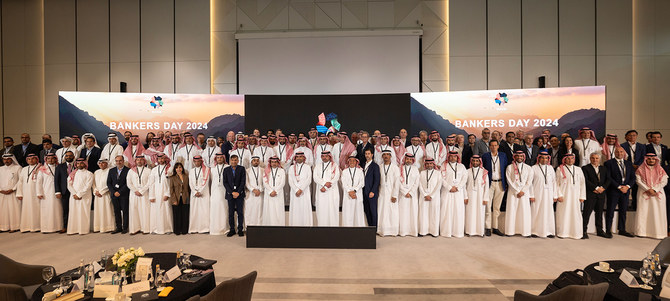
RIYADH: Saudi giga-project NEOM hosted 52 global, regional, and local financial institutions, showcasing ongoing progress across key projects and highlighting investment opportunities.
The meeting also reviewed the progress and latest developments in key NEOM undertakings, including The Line, Oxagon, Trojena, and Sindalah, scheduled to open later this year.
The event showcased the giga-project’s commitment to sustainable growth and development, underscoring its focus on environmental, social, and governance principles.
A notable aspect of the visit included a review of The Line, where dignitaries observed the rapid progress of phase one construction and gained deeper insights into the initiative’s design.
Nadhmi Al-Nasr, CEO of NEOM, said: “Since inception, we have been establishing strong partnerships to help drive this grand vision forward. NEOM’s vast scale and expertise offer strong and ongoing commercial opportunities for global organizations, including financial institutions.”
He added: “We were pleased to host guests from some of the world’s leading financial institutions in NEOM recently to discuss collaborative avenues. NEOM is open for business and we welcome all interested parties to be part of our continued success.”
The event drew representatives from 24 international banks and financial institutions, including those from Germany, Spain, and France, as well as the UK, the US, and China. Additionally, representatives from Japan and South Korea attended the event.
In addition, 13 regional banks from Qatar, Kuwait, and the UAE attended, alongside 15 financial institutions from Saudi Arabia.
In June 2023, NEOM launched the largest public-private partnership for accommodation, valued at over SR21 billion ($5.67 billion).
It also announced an SR37.5 billion joint venture with global logistics company Denmark’s DSV in October 2023 to provide logistics services for the giga-project.
These announcements, along with other NEOM partnerships, were well-received by attendees at Discover NEOM China, an event held in Beijing, Shanghai, and Hong Kong earlier this month. The event attracted more than 500 senior business and industry leaders.
SR10bn credit facility
NEOM also announced the signing of a credit facility worth SR10 billion to meet its short-term financing requirements.
The facility, structured on Murabaha principles, is aimed at supporting the developmental stages of flagship projects like The Line, Oxagon, Trojena, and Sindalah.
Al-Nasr emphasized the strategic alignment of these credit facilities with the Kingdom’s broader economic goals under Vision 2030.
In a press release, he highlighted the collaborative effort of leading Saudi financial institutions in supporting one of the world’s most ambitious projects by providing diverse financing solutions that bolster NEOM’s infrastructure initiatives.
The agreement has garnered significant attention, involving nine prominent banks such as the National Commercial Bank, Riyad Bank, and Saudi First Bank, alongside other key financial players.


